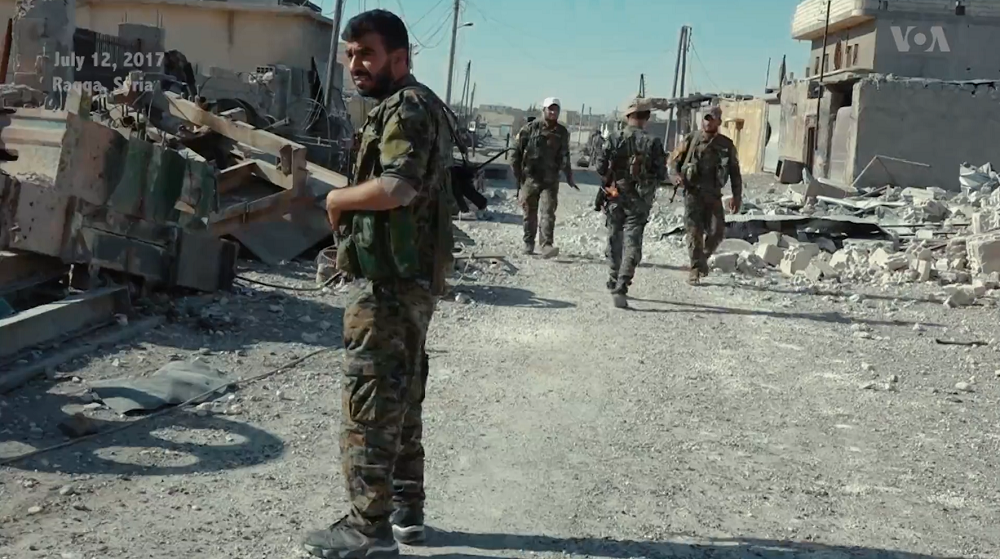In Syria, a ceasefire negotiated by Russia and the United States quickly broke down last week. Although unstable from the outset, the truce crumbled after the US bombed a Syrian army position, in a move it said was accidental, and Russian or Syrian jets attacked a UN aid convoy near Aleppo.
This ceasefire was just the latest of several short-lived truces put in place in an attempt to stop the devastating fighting in Syria.
JMEPP’s Sam Bollier spoke with Professor Virginia Page Fortna, the chair of the political science department at Columbia University and an expert on peacekeeping, on ceasefires and the situation in Syria.
What do you think is the missing ingredient in these Syria ceasefires? Why have they failed to endure?
One major complicating factor is the role of outsiders. When outside states help the government and the rebels, that both increases the duration of war and makes it harder for ceasefires to stick. When you think about it from the perspective of the warring parties, for a ceasefire to stick it has to be better for them than continuing the war. The protection that Russia offers to the regime is that the risk of losing badly has been minimized. So the incentives for the regime to abide by the ceasefire are much lower than they would be without outside intervention. Perhaps the same could be said for the rebel side as well.
Until the outside players – the US, Russia, Iran, Saudi Arabia, etc. – until they are truly on board with the ceasefire, it’s not impossible, but it’s going to be quite difficult to reach a lasting ceasefire. Those outside players are not paying the high cost of war. Normally the thing that makes war ends is fatigue with the war … the cost of the war just gets too high, and so it’s better to settle than not. For outside players, they are trying to protect their interests but are not directly paying the cost of the war themselves. I think that’s a large factor.
Another piece is there haven’t yet been strong mechanisms for monitoring the ceasefire or peacekeeping that can help make a ceasefire stick. … To the extent that ceasefires fall apart not because of intentional violations but because of misunderstandings, accidents, things escalating and getting out of hand – those kinds of mechanisms, particularly peacekeeping, can be hugely important.
How much of an effect does the presence of monitors and peacekeepers have on a ceasefire holding?
In a book I wrote on the effectiveness of peacekeeping, I compared ceasefires that had lasted for at least a month. The presence of peacekeeping, controlling for a lot of other things … reduces the chances of another war starting or a ceasefire breaking down by between 75-85 percent. It’s a very dramatic effect.
Do you think the negotiators of the recent ceasefire in Syria could have done anything differently to improve the chances of the ceasefire’s success?
We don’t know with high confidence what exactly happened to make the ceasefire break down. In one scenario, there was an accidental bombing by the US of a Syrian position that eroded trust, and led the Syrian government and Russia to harden their position and launch what seems to have been an attack by either the regime, or probably Russia, on the aid convoy. So could there have been something in the ceasefire that would have prevented this, if that is in fact what happened?
I think what’s been called for more recently – an end to any bombing of particular areas or even any overflights – would have helped. But of course that’s a complicated thing to agree too. Part of what’s particularly complicated in this war is the attempt to reach a ceasefire between Western-backed rebels – the “good guys” from the Western perspective – and the regime, but not have a ceasefire with ISIS. So that’s a complicating wrinkle. … The attempt to have a partial ceasefire as opposed to a ceasefire that would include ISIS is part of what makes it very difficult for a ceasefire to hold. One way around that would be to try to negotiate a ceasefire with ISIS. But that is obviously politically very difficult for the West, the Assad regime, for Russia.
Can ceasefires be beneficial even if they fail, by helping to form negotiating relationships among adversaries that can be useful later in a peace process?
Yes, I do think so. It doesn’t mean that they are always better. A lot of it depends on why they fail. We still don’t exactly know what happened [to cause the Syria ceasefire to collapse], but it seems to be the perception of outside parties, at least, that this failed through double-dealing and the kinds of things that increase mistrust. If ceasefires fail through less purposeful action, then [the parties can say] “OK, we tried it, it didn’t work … but we’ll try it again to make those accidents less likely to happen.”
If they fail because both sides see the other as violating them on purpose, then they actually increase the mistrust and make it even harder next time around.
